The best laptop for photo editing are equipped with a zippy hard drive, stocked with artist-friendly ports, and jam-packed with powerful components capable of running demanding photo-editing software. It should also have adequate storage to maintain a large library of photo files and a GPU that can handle all of your favorite graphics-intensive applications.
If you edit photos, you’ll need a beautiful display capable of accurately reproducing a wide range of colors. At Laptop Mag, we’ve reviewed a swath of best laptops for photo editors and photographers, so we know which devices are perfect for content creators. We also test benchmarks that are important for photo editors, including Delta-E scores, sRGB gamut volume and graphics performance. Armed with these metrics, we’ve put together a list of the best laptops for photo editors.
Prime Day 2023 is here, and we will cover content creation and photo editing laptop deals. Everyone these days is creating content, and having a system powerful enough to handle those needs is important but not as important as getting a great deal on one. During this Amazon Prime Day deals week, you’ll get the best deals available to meet your photo editing needs.
For those who also dabble in video, check out our best video editing laptops. If you prefer to edit photos on a touch screen using your finger or a stylus then head over to our best touch screen laptops and best 2-in-1 pages for more specific recommendations.
What are the best laptops for photo editing?
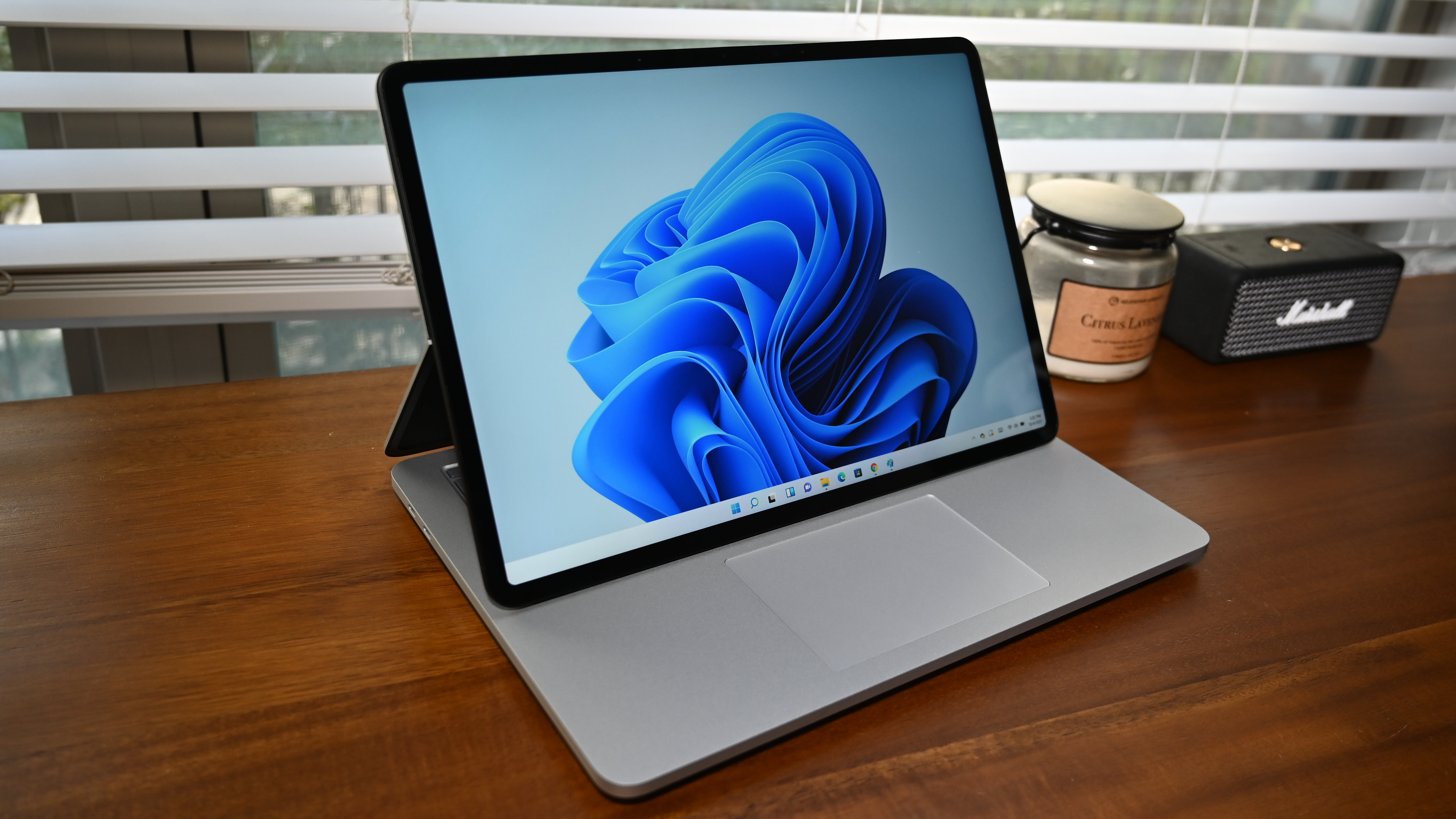
Instead of having a detachable lid like the Surface Book it replaces, or an attachable keyboard like the Surface Pro 8, the Surface Laptop Studio employs a unique hinge that allows the display to be flipped and positioned into different modes. The concept works really well. Not only can the Surface Laptop Studio be transformed into a digital drawing board, but it does so without compromising the standard laptop mode.
This flexibility, along with excellent performance and long battery life, makes the Surface Laptop Studio a compelling option for creative professionals. Add in a fantastic keyboard/touchpad combo, powerful speakers, and a 1080p webcam, and the Surface Laptop Studio finds its place as one of the best laptops.
See our full Microsoft Surface Laptop Studio review.
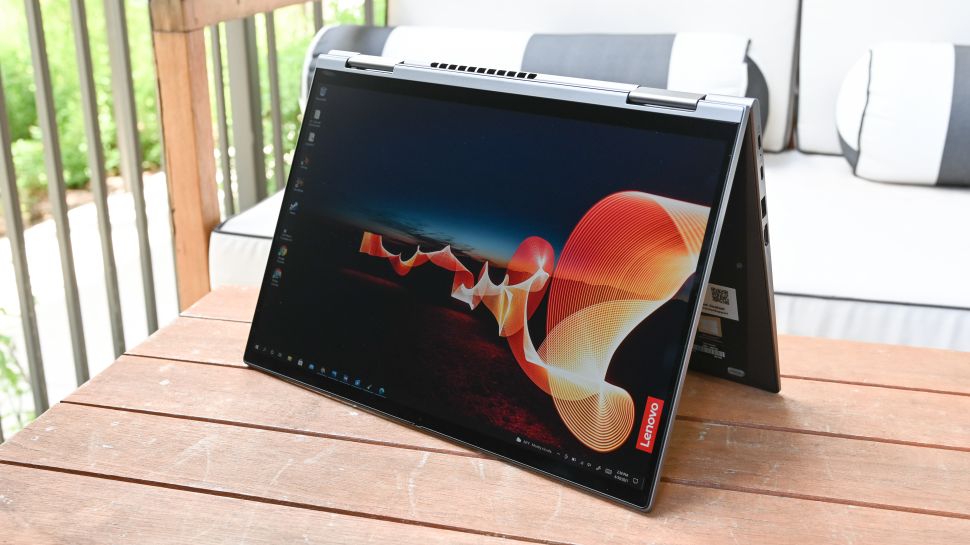
The Lenovo ThinkPad X1 Yoga returned in 2021 with a few internal updates, including the 11th Gen Intel vPro CPUs. But the battery life upgrade is even more enticing; the Gen 6 model lasts for nearly 15 hours on a charge. The ThinkPad X1 Yoga, dubbed the best 2-in-1 laptop for professionals, continues to be an excellent choice for photo editors.
You can opt for either the full HD variant or the model with a stunning 4K display. For photo editing, we recommend the latter. The display on the 4K model covers a whopping 133% of the sRGB color gamut. It also offers a radiant 488 nits of brightness, so you can edit on bright, sunny days without struggling to see what’s on your screen.
See our full Lenovo ThinkPad X1 Yoga (Gen 6, 2021) review.
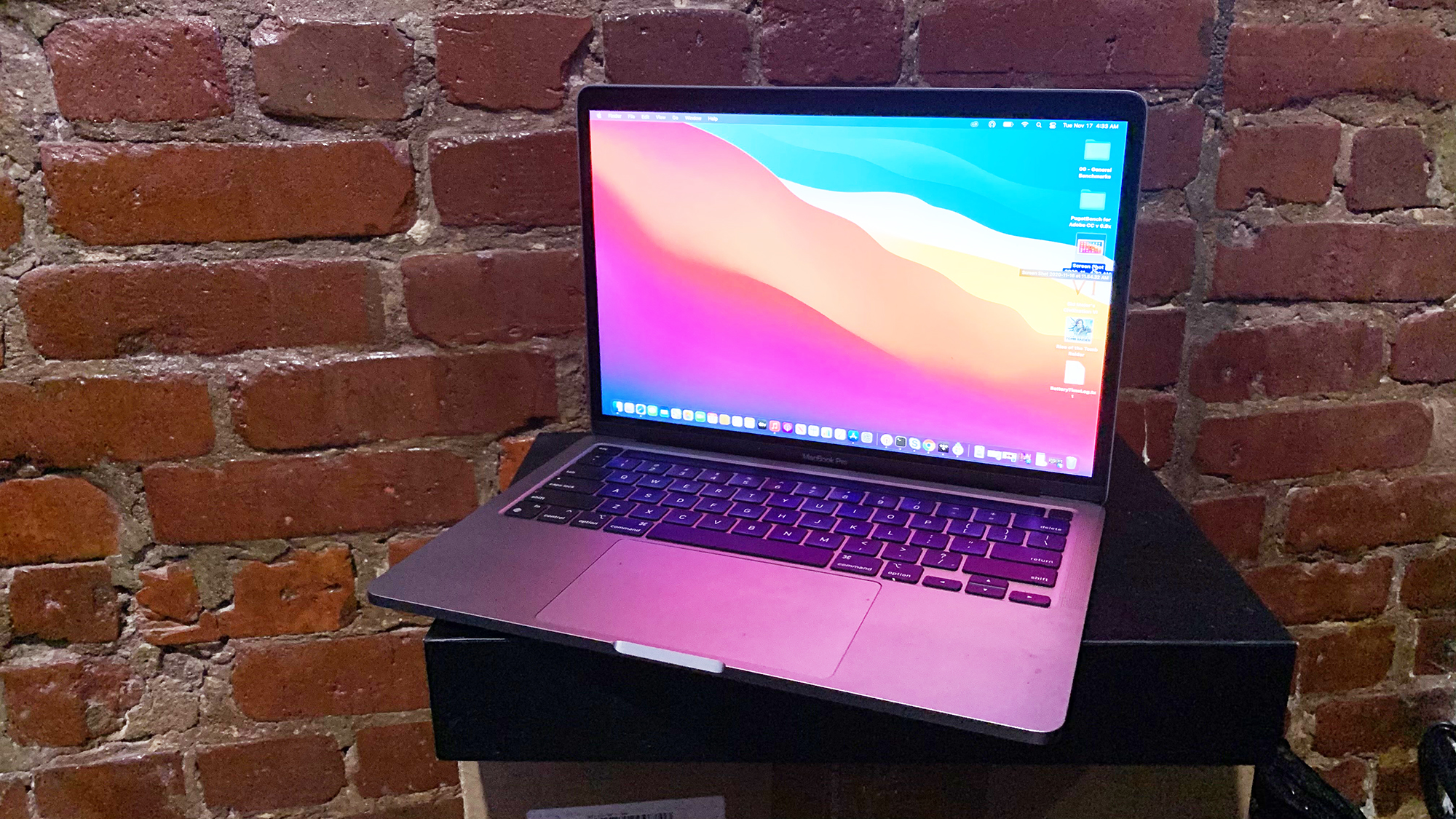
This MacBook Pro 13 marks a new chapter in Apple computing and computers as a whole. So what’s behind the monumental change? Apple’s new M2 processor, the much-ballyhooed component that signals the company’s break from Intel in favor of custom silicon.
The next chapter in Apple computing continues and the company’s bet on custom silicon continues to hit the jackpot. M2 is 18% more powerful than its ancestor with an 8-core CPU. M2 is also bringing a new 10-core GPU that’s 35% faster than the previous model. And yes, M2 definitely continues its Windows PC. And if that isn’t enough to get you excited, Apple has found a way to improve on the laptop’s power efficiency, delivering over 18 hours of battery life. Read on to learn more about Apple’s latest home run. Is an excellent laptop for photo editing.
See our full Apple MacBook Pro 13 review.
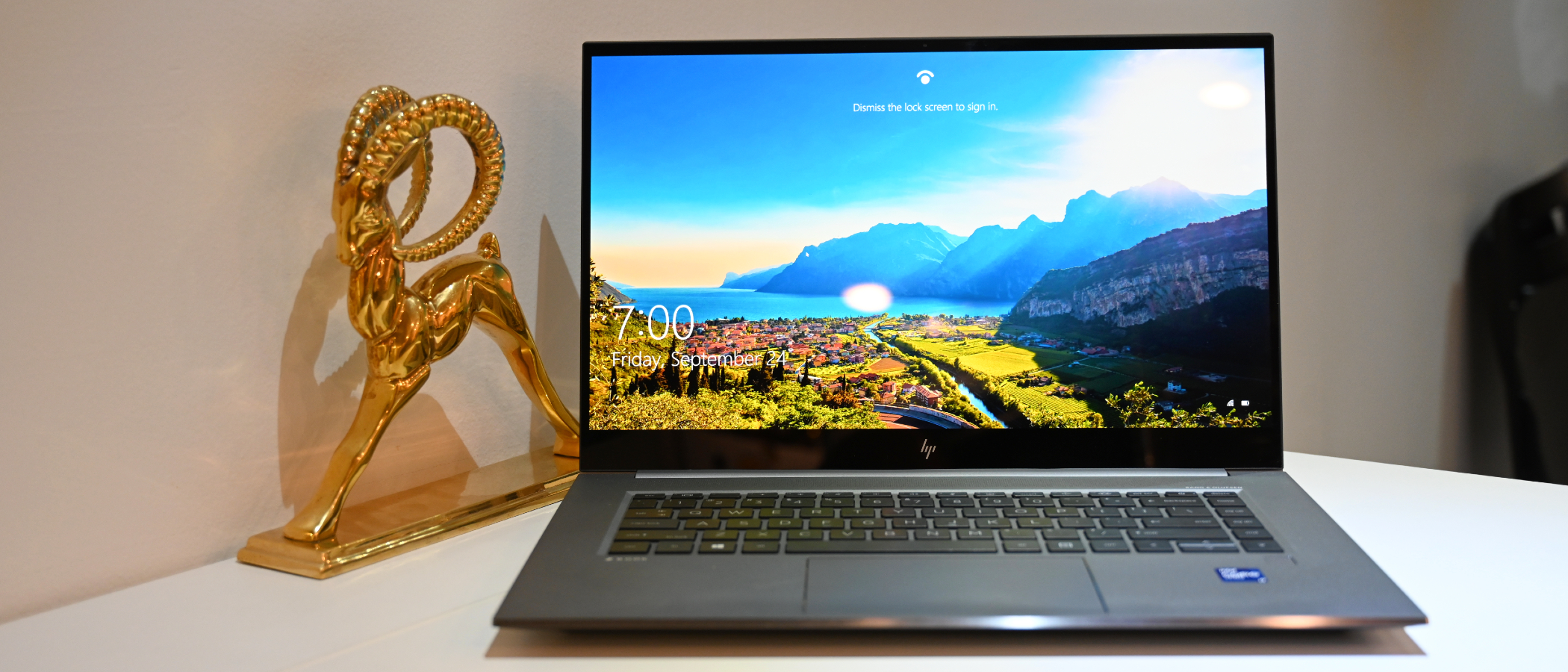
This salacious attention grabber comes with an 11th Gen Intel Core i9 processor, 32GB of RAM, 2TB of SSD storage, and an Nvidia GeForce RTX 3070 GPU that will more than handle all your Adobe Creative Suite power-hungry needs and then some.
However, for the price, I wish the battery lasted longer and it didn’t run as hot. If you’re looking for longer battery life and just a scooch more power, the $2,999 MSI Creator Z16 is an option that’s loads cheaper. However, if you’re on the hunt for a durable, portable powerhouse the HP ZBook Studio G8 is the way to go.
See our full HP ZBook Studio G8 review.
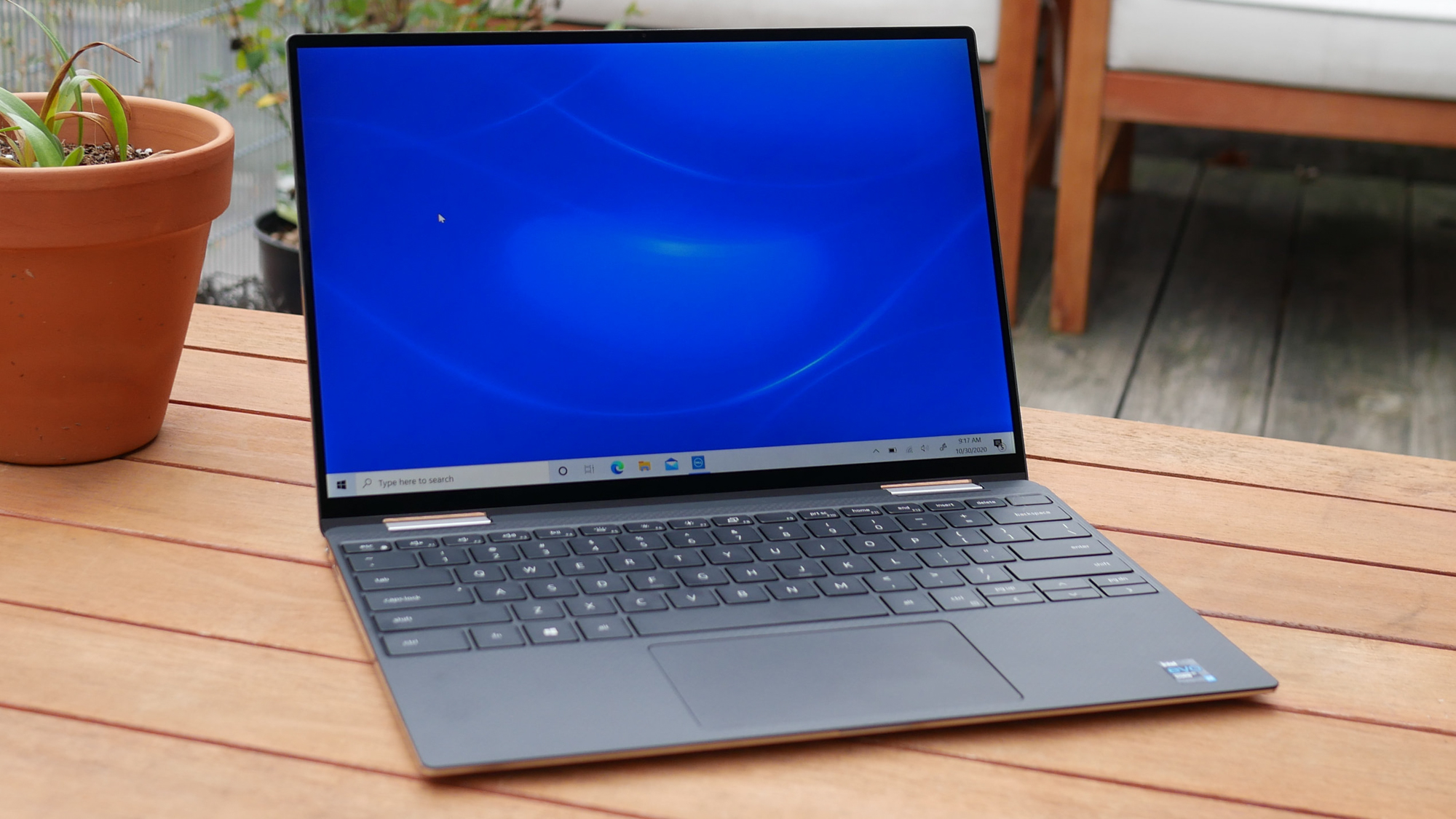
The new XPS 13 2-in-1 is without question among the best 2-in-1 laptops you can buy. That shouldn’t come as a surprise. Dell smartly used the XPS 13 as a blueprint for the XPS 13 2-in-1, an almost identical laptop, but with the ability to transform into a tablet.
Largely unchanged from the previous model, the 2020 XPS 13 2-in-1 benefits from 11th Gen Intel Tiger Lake CPUs and accompanying Iris Xe graphics. The updated components result in class-leading performance for ultrathin laptops. Along with fast speeds, you get a bright 13.4-inch FHD+ display, long battery life and useful security features, including a fingerprint sensor and new IR camera.
See our full Dell XPS 13 2-in-1 review.
Editor’s Note: Not sure you need a convertible 2-in-1? The clamshell XPS 13 is also an outstanding laptop with a gorgeous 4K display. See our Dell XPS 13 review.
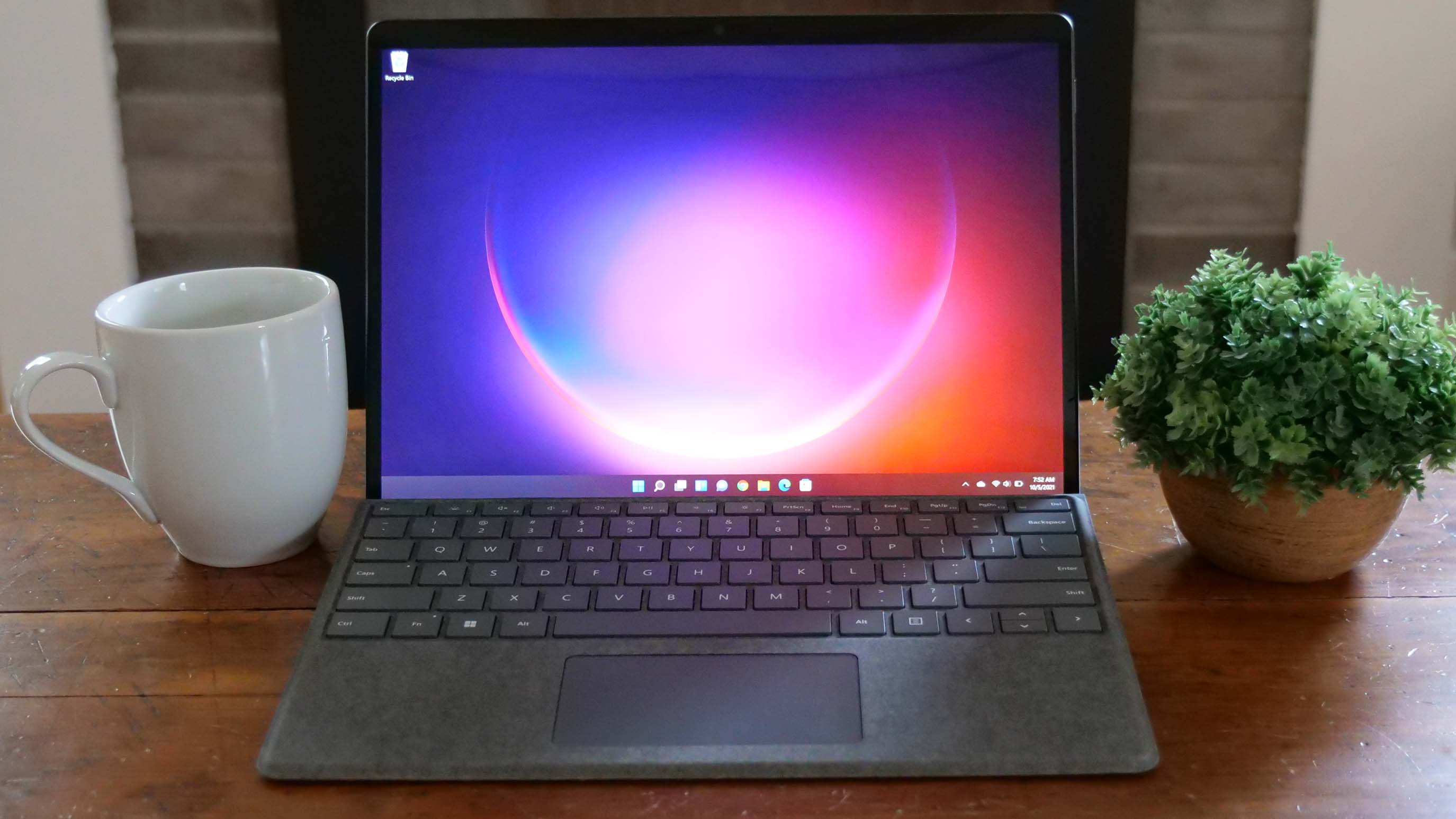
Without departing drastically from its iconic look, the Pro 8 makes subtle improvements to the Surface Pro as a tablet and a laptop. Upgrades include a larger display and a more comfortable to use design, along with a much-needed internal upgrade. That includes an 11th Gen Intel Core i7-1185G7 processor and up to 32GB of RAM, components that bring some of the new features of Windows 11 to bear.
A bit more battery life would have been outstanding and the price jump may be hard for some to swallow. However, taken as a whole, the Surface Pro 8 is a solid addition to the Surface lineup and a compelling option for those looking to upgrade their laptop for the move to Windows 11.
Read our full Microsoft Surface Pro 8 review.
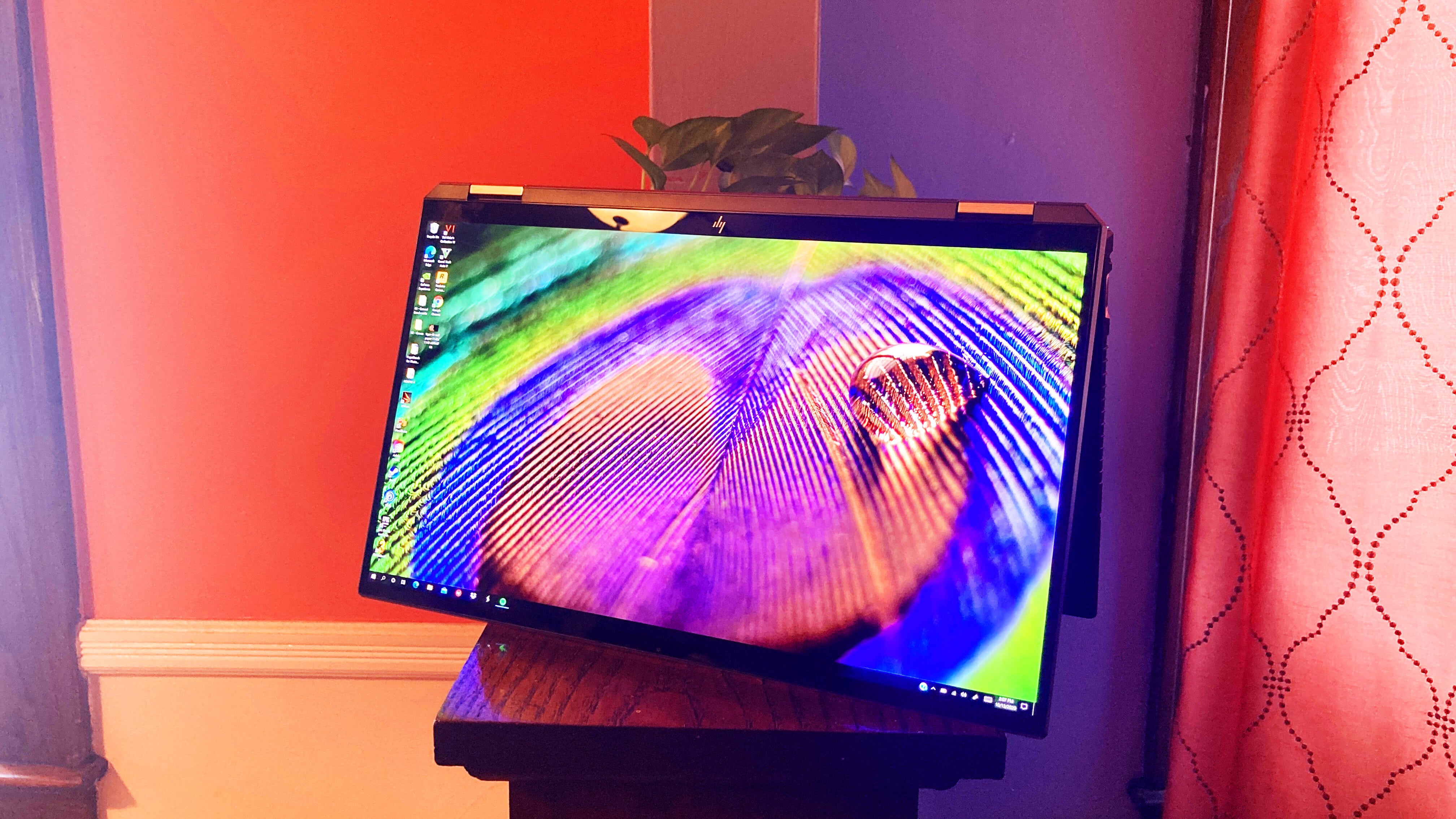
The Spectre x360 15 has a luxurious aesthetic with its black-and-gold motif. It’s the type of laptop you’d expect to be in the hands of a wealthy Millennial who owns a private jet. Carrying this modern beauty around will certainly turn heads and attract envious glances that say, “I want that!”
The HP 2-in-1 — equipped with a six-core Intel Core i7 H-series CPU and a discrete Nvidia GPU — is ideal for photographers, digital artists and video editors seeking a color-accurate, speedy notebook with a 4K panel that will widen your eyes with awe.
See our full HP Spectre x360 15 (2020).
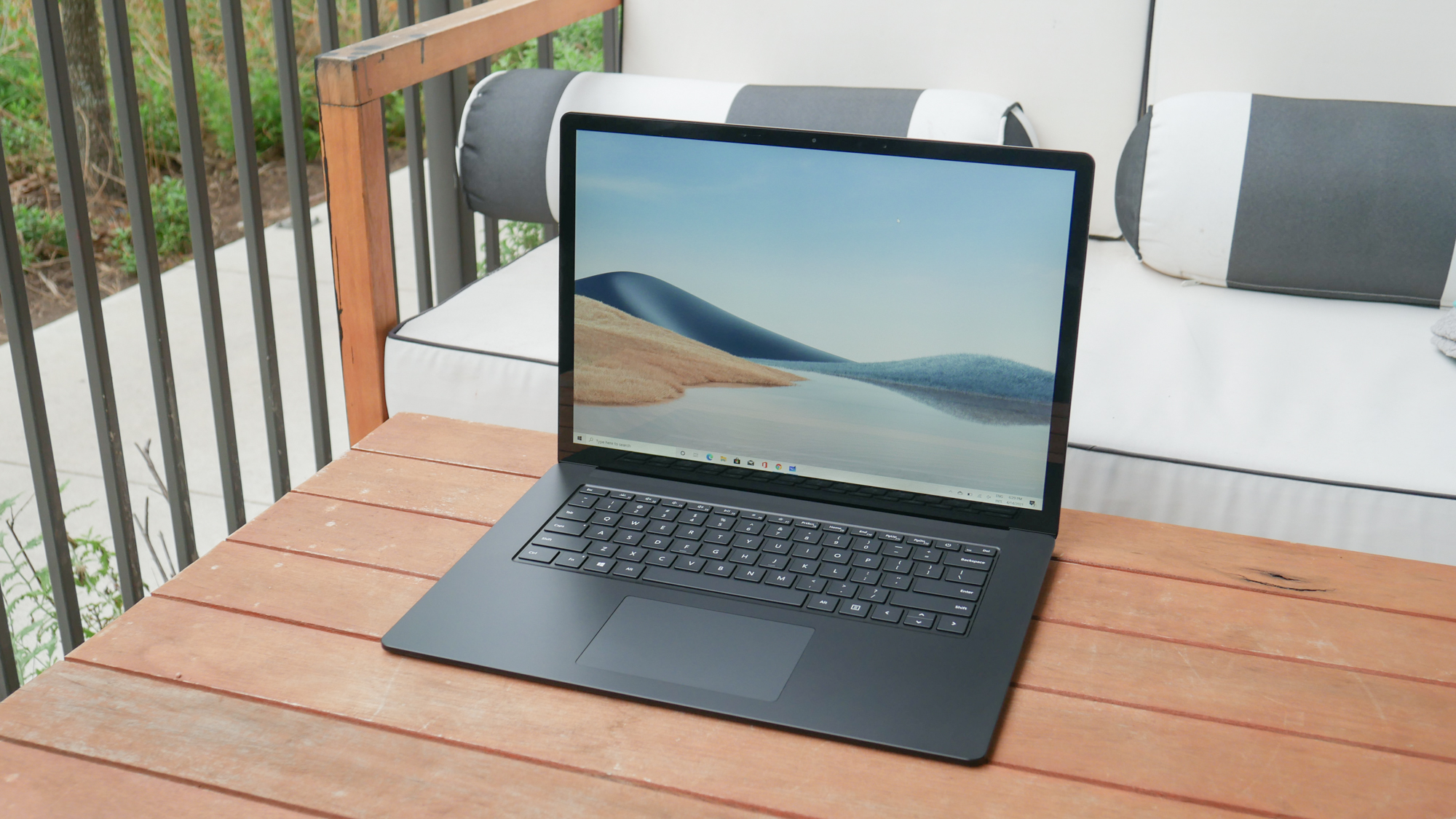
The Surface Laptop 4 addresses the major flaws we found in the Surface Laptop 3 by delivering faster performance and longer battery life. With the right CPU, the Surface Laptop 4 has all of a sudden become a laptop with very few downsides. The sleek, sturdy design is as stylish as ever, the 15-inch panel is bright and vivid, and the keyboard and trackpad are darn-near class-leading.
If only Microsoft hadn’t stubbornly ignored some of the smaller problems plaguing the Surface Laptop series. There is only one USB Type-C port (without Thunderbolt support), the proprietary Surface Connect input is, well, proprietary, and the display bezels are long overdue for a buzzcut. But if you can overlook these flaws, the Surface Laptop 4 is an excellent option for photo editors.
See our full Microsoft Surface Laptop 4 review.
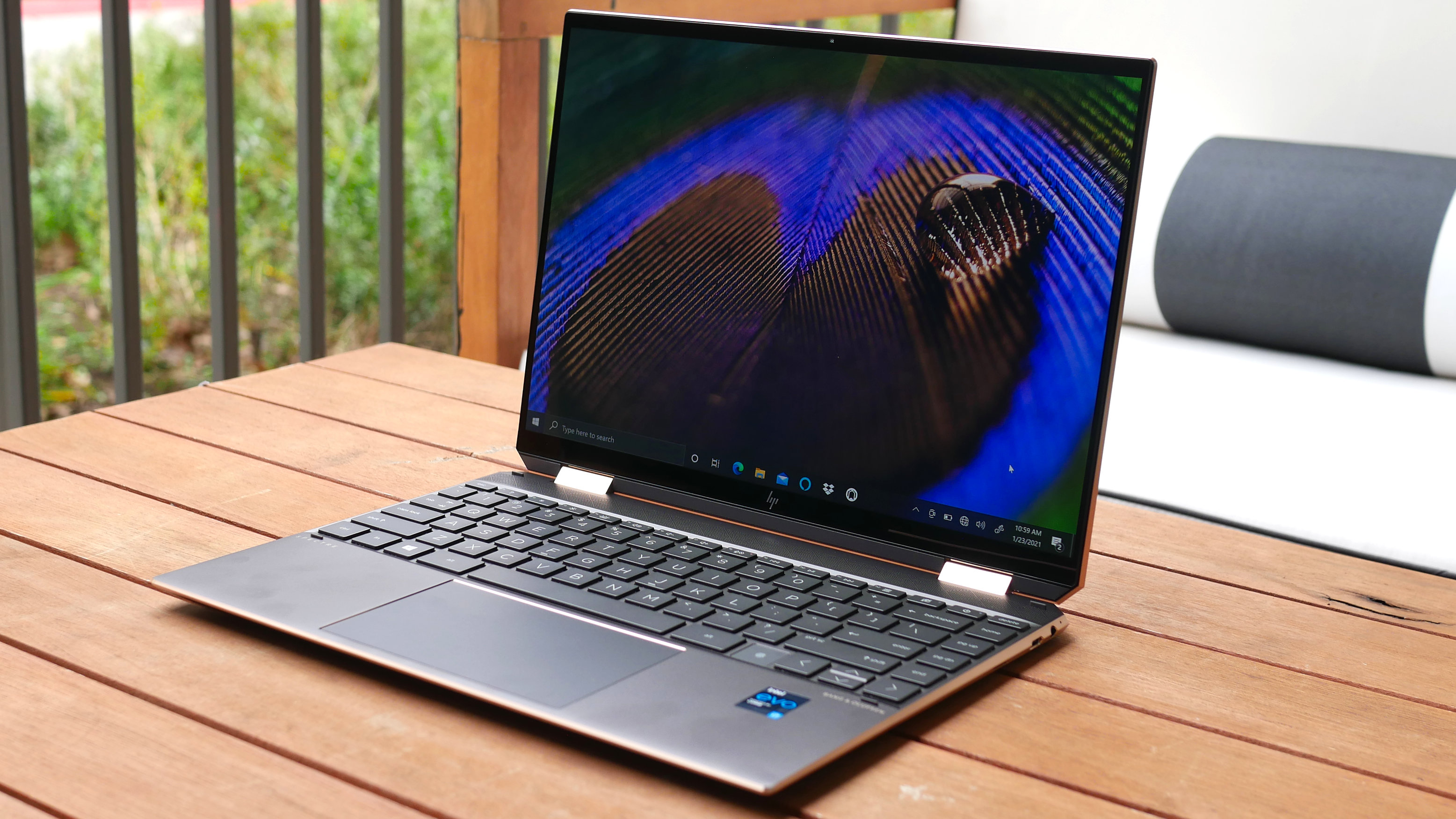
The Spectre x360 14 is the best 2-in-1 laptop ever. Newly released for 2021, the 13.5-inch model builds upon its predecessors but adds useful new features including a 3:2 aspect ratio display and 11th Gen Intel CPUs with Iris Xe graphics. Highlights of this laptop include a stunning design, bright and vivid 1920 x 1280-pixel IPS and 3K2K OLED display options, epic 12+ hour battery life and fast overall performance.
Add to that a generously sized touchpad that is silky to the touch as well as a comfortable (albeit shallow) keyboard, excellent security options (fingerprint sensor and facial recognition) and a good selection of ports, and well, it’s easy to see why we like this laptop so much.
We recommend buying the Spectre x360 14 over the Envy 13 if you have the money, especially if you need the flexible design. In fact, the Spectre x360 14 is the best HP laptop if you want a convertible notebook. Sure, it has a few faults, but those are easily forgotten once you get this beauty in your hands.
See our HP Spectre x360 14 review
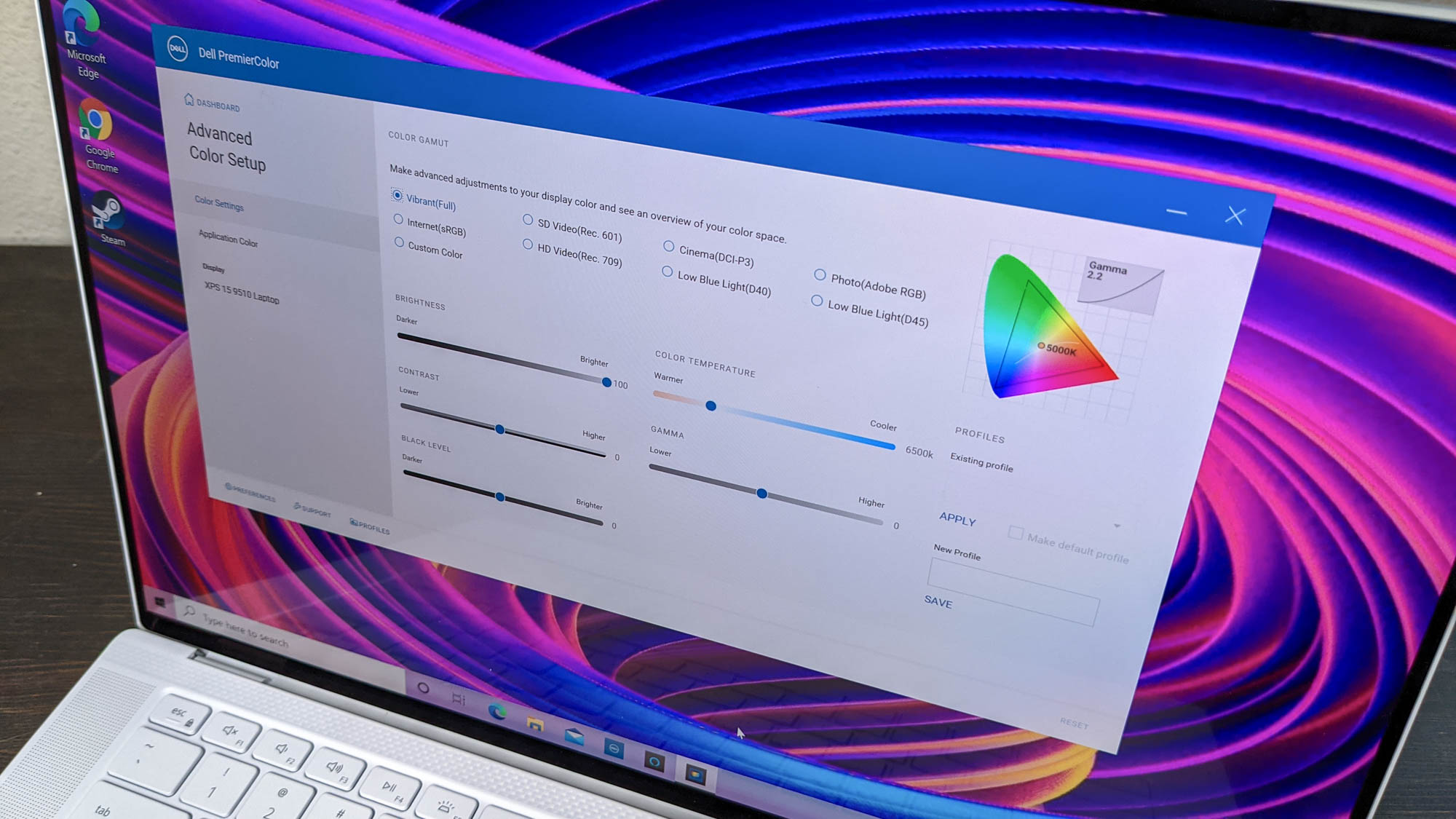
The XPS 15 OLED is a better version of the laptop I’ve consistently praised over the past several years. It fixes past problems (remember the nosecam?) while refining every inch of the package. The highlight of this particular configuration is the stunning 3.5K OLED display with its jaw-dropping colors, contrast and brightness.
It’s a panel befitting of the XPS 15’s stylish and portable design that blends a machined aluminum exterior with a woven pattern on the inside. On the deck are a gargantuan touchpad, spacious keyboard and powerful speakers.
See our full Dell XPS 15 OLED (2021) review.
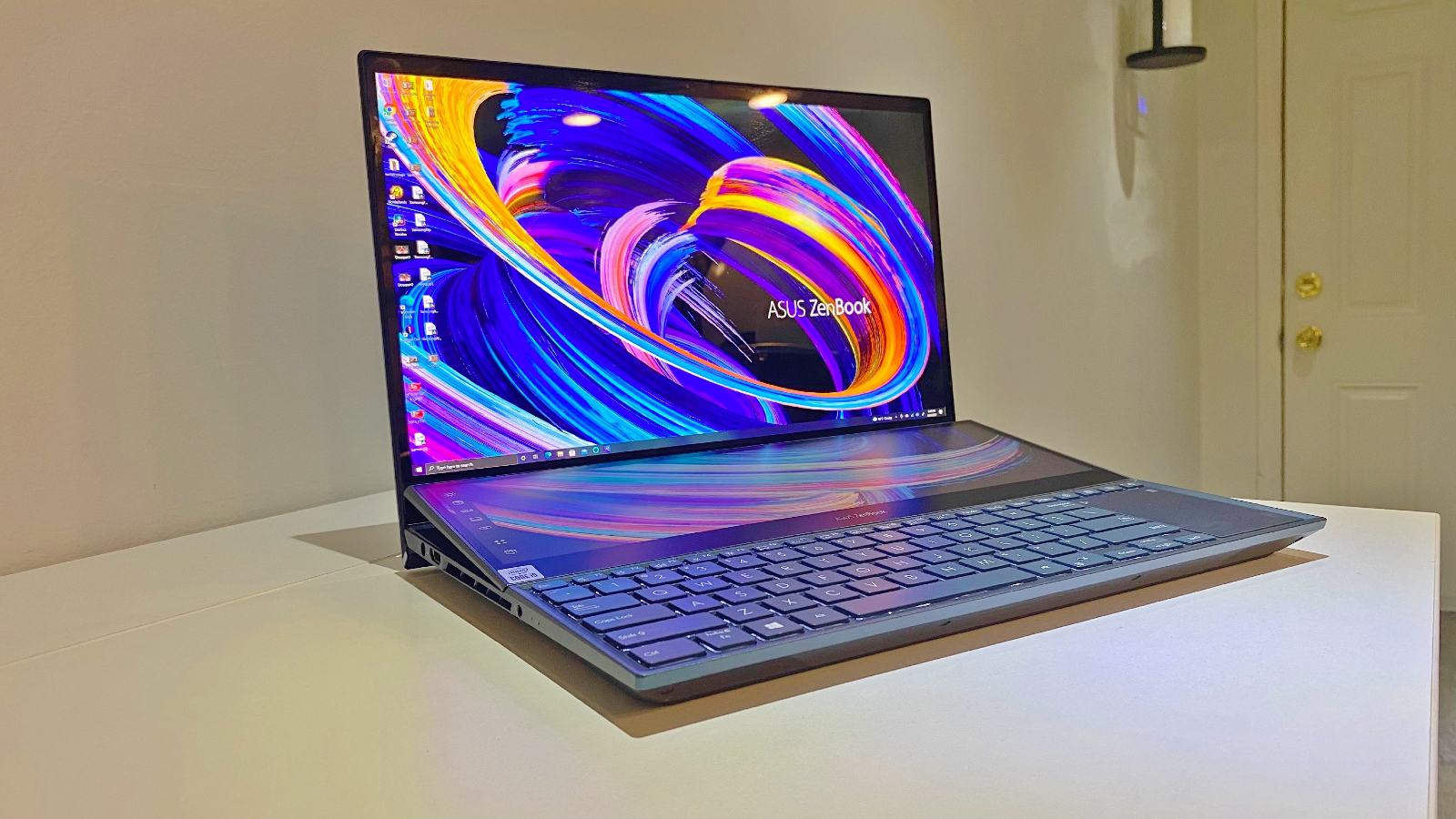
The Asus ZenBook Pro Duo 15 is a unique dual-screen laptop with a 15-inch, 4K OLED panel up top and a smaller OLED screen above the keyboard. Asus’s take on dual-screen laptops has evolved since the first iteration of the Asus ZenBook Duo (UX481), with improvements in build quality and ergonomics addressing some of the original problems.
Has it grown enough to make Asus’s vision of a dual-screen laptop something consumers clamor for? In some regards, yes, but it still feels like a niche device for a subsection of content creators (who have large budgets). Some may not be fond of the keyboard and touchpad location, and the price is a serious deterrent, but the ZenBook Duo Pro 15 should be considered by content creators who need more screen real estate while on the go.
See our full Asus ZenBook Pro Duo (UX582L) review.
How to choose the best photo editing laptop for you
The best photo editing laptop is well stocked on ports, has excellent color reproduction, can handle demanding photo editing software and more. Here’s what you should look for when choosing the best photo editing laptop for you.
The sRGB gamut coverage: The sRGB gamut coverage tells you how well a laptop can reproduce all colors on the color wheel.This is what separates a lackluster viewing experience from a captivating, can’t-take-your-eyes-off the-screen moments. At Laptop Mag, we use the sRGB color gamut to measure color quality, with 100% being our accepted minimum. All the best photo editing laptops in our buying guide surpass this benchmark.
Delta-E score: The Delta-E is a single number that represents the ‘distance’ between two colors. A score of 0 is ideal and represents high color accuracy.
Ports: Photo editors need SD card readers, Thunderbolt 3 ports and other artist-friendly ports that are helpful for transferring files or optimizing the photo editing experience. Keep an eye out for the ports you’ll need and figure out whether your laptop of choice has everything you need. You can always get an adapter if the laptop you really want doesn’t have a port you desire.
High-performing graphics card: Keep a look out for discreet graphics cards as opposed to integrated GPUs as they will be able to handle the most demanding photo editing platforms on the market.
Software: Some laptops will come equipped with quality pre-installed photo editing software that will make you photo editing experience a breeze.
Brightness: As a photo editor, you must be very detail oriented and it’s not easy to be nitpicky with details if you have a dim display. Look for laptops with brightness scores of over 250 nits.
Storage: If you need a ton of space to handle your workload, you’ll need to ensure that your laptop has enough storage so that you don’t end up frustrated when you receive a message telling you that you’ve run out of space.
How we test the best laptops for photo editors
We test the best laptops for photo editors by, first, running tests on the laptop’s display. Our labs run sRGB gamut coverage tests, as well as Delta E accuracy, screen brightness and more.
We also test the graphics card performance by using the 3DMark benchmark to determine the laptop’s ability to run graphic-intensive applications. We also dive into processor performance using the Geekbench benchmark.
Our labs also test for how fast the laptop can transfer files, which is important information for impatient photo editors who have a lot of content to output and input on their laptops.
Multitasking muscle is another aspect of laptops we test. Photo editors tend to have multiple programs running in the background, and if a laptop lacks multitasking muscle, it will become slow and sluggish.
We also dive into tests that have nothing to do with photo editing, but may appeal to photo editors depending on their needs, including the image quality of the webcam, the crispness of the speakers and gaming capabilities.
Source link
 notebook.co.id informasi dan review notebook laptop tablet dan pc
notebook.co.id informasi dan review notebook laptop tablet dan pc